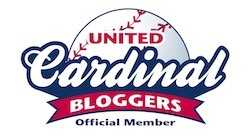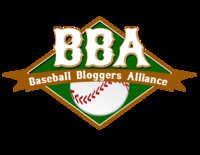Why the designated hitter is killing the National League
By COREY NOLES
I love National League baseball. I figure that's where I should start.
I love the double switch, the Mike Hampton home run and the danger of underestimating any major league caliber player at the plate.
I love watching pitchers get excited about their offense. I love the Adam Wainwright is convinced (and so am I) that he will win the Silver Slugger in 2014.
The designated hitter robs the game of those elements.
The debate about the designated hitter is nothing new.
American League fans and players love it. National League fans and players hate it.
There is no middle ground.
What I hate even more, though, is the fact that the National League can't seem to keep players in this new era of monster contracts.
They lost Albert Pujols. They lost Prince Fielder.
One of these days they'll lose Bryce Harper and Giancarlo Stanton--if things don't change.
There are a couple of reasons why the designated hitter is killing the National League.
For the most part, pitchers don't bat UNTIL they reach the major leagues.
In many cases, major league pitchers are taking their first swings in years when they arrive at the big league level.
They don't hit in high school. They don't hit in college. They don't even hit in the minor leagues.
They might take batting practice now and then, but some haven't batted consistently since little league.
The problem this creates is that pitchers, as a result, largely stink with a bat. While there are a few exceptions, they way a National League lineup is constructed does make a missed opportunity more of a crisis than it is in an American League game.
Another problem with pitchers lacking Hank Aaron-like skills with the lumber is that fans love offense.
While the general opinion of fans when writing rules might seem pretty far down the list of things that matter, it's quite the contrary.
Fans buy tickets for exorbitant amounts of money. Fans buy player jerseys for even more money than they spend on tickets.
Fans buy tickets.
Fans buy New York Yankees stickers for their vehicles and San Francisco Giants garden gnomes to sit by their front door and profess their inner fandom through plaster statues.
Did I mention that fans buy tickets? That part is pretty important to all owners.
What do fans most like about baseball games? Offense.
What does the designated hitter provide? More offense.
Offense has dipped in baseball in recent years, but especially in the National League.
In 2013, of the top 10 teams in runs scored, only two were National League teams (St. Louis Cardinals and Colorado Rockies.) Of the bottom 15 teams, 10 are from the National League.
That number is already taking a bite out of ticket sales. Currently, nine of the bottom 15 teams in runs scored, also fall in the bottom 15 in attendance in 2013.
None of those teams average 29,000 fans through the turnstiles.
Another issue, and likely the single most important, is the fact that long-term contracts don't work for NL teams.
The changing financial state of player contracts throughout Major League Baseball is another problem for the National League--and the designated hitter is the pivot point for these problems.
With the 8-10 year deal becoming the norm for MLB superstars, the NL is at a distinct disadvantage.
Thanks to the DH, American League teams can justify a longer deal.
It worked for Pujols. No National League team in their right mind could justify signing a 10-year contract for anyone in my opinion.
The designated hitter provides a cushion, or insurance policy, for these deals.
Take David Ortiz for example. Since 20014, Ortiz has served almost solely as the Boston Red Sox designated hitter.
Given his success, no one would say that his career was over in 2004. In fact, including his current contract, Ortiz could play as many as 14 seasons past the point where he made the transition.
There's not an American League team in the league that wouldn't love to have him on its roster.
But what about National League teams? He's virtually useless to a team that doesn't have a designated hitter.
The gamble is too risky even for a one or two year deal. He couldn't hold up in the field consistently throughout the season.
He's still a quality player.
So is Prince Fielder.
So is Albert Pujols.
At what point do the National League owners break down and allow the change and take the handcuffs off of their general managers?
Do we really want to see all of the game's offensive talent slowly jump ship because the two leagues aren't playing by the same rules?
--
Corey Noles is a Cardinals Writer and Columnist for The Daily Statesman. He is also a regular contributor to Bleacher Report and KSDK.com. Contact him at cnoles@dailystatesman.com or on Twitter @coreynoles.
Comments
-
-- Posted by Steve Frey on Thu, May 1, 2014, at 8:05 AM
-
-- Posted by Bunk on Thu, May 1, 2014, at 11:22 AM
Respond to this blog
Posting a comment requires free registration:
- If you already have an account, follow this link to login
- Otherwise, follow this link to register




